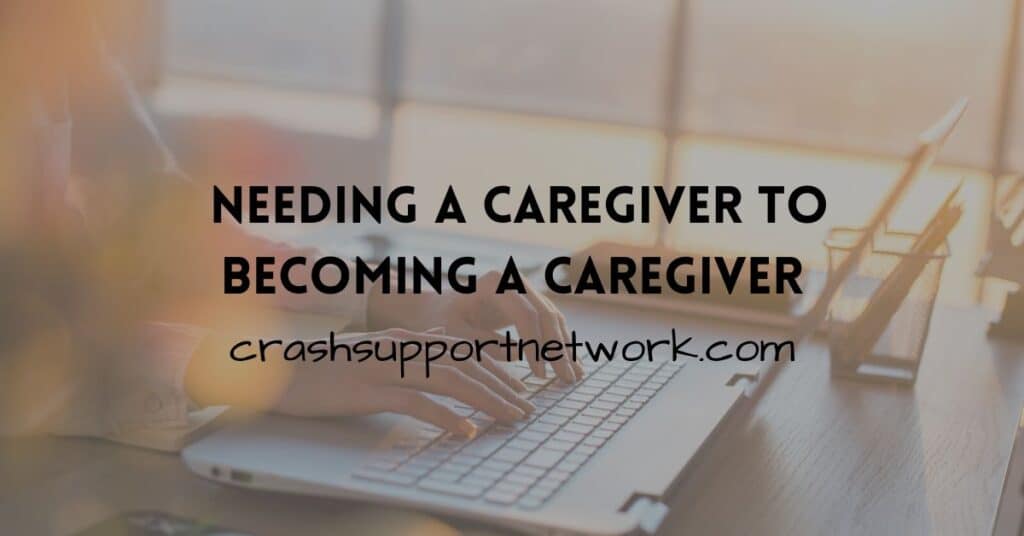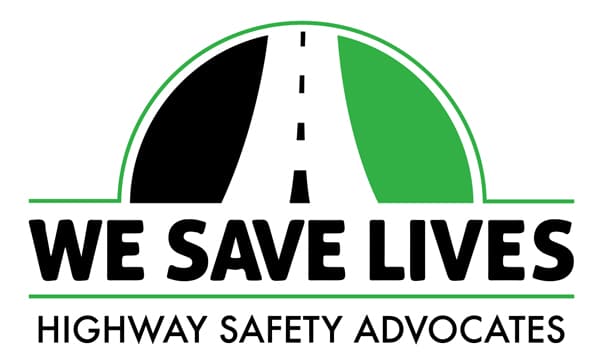
The last few months have been extra challenging to say the least and even though I tried numerous times to sit down and write this blog, I found myself constantly walking away from my computer after typing a few lines. Nothing prepares you for the moment that your significant other falls seriously ill especially when you are out of the country and he was once your caregiver after you survived a horrific motor vehicle crash. What was suppose to be routine surgery for my fiancé turned out to be an unexpected 16-day stay in a Florida Hospital. He was admitted with a dangerously low potassium level and had all the symptoms of an appendicitis. He was in excruciating pain and surgery was booked for the following day. I instantly became his caregiver and advocate just as he did for me years ago.
I Had to Stop and Take a Rest
Although the surgery was a success, within a couple of days he became septic, contracted pneumonia, the flu and was put into isolation. An NG-Tube was put in place and the waiting game began. Nasogastric intubation (NG) is a procedure that inserts a nasogastric (NG) tube into your nose down into your stomach which enables you to drain gastric contents. My heart goes out to anyone that has experienced this as I can’t explain how terrible it was to watch him suffer like that. As most of us are aware, doctors like to do their rounds first thing in the morning. Some believe the reason that they do their rounds so early in the morning is to avoid speaking with family members or their caregiver but nonetheless, I pushed my own chronic issues aside and was there right by his side every morning at 6am to receive that update. We were both anxious, worried and frightened.
After the 5th day, when his health didn’t seem to be getting any better and I hadn’t left his side other than to get a few hours of sleep at night, he sensed that I needed help so his daughter agreed to fly in for much needed support. Once his daughter arrived, I took the morning shifts until mid day then returned late afternoon. Although the few hours that I left the hospital during the day was intended to have some much needed down time, I had to force myself to lie down even if it was just to try and rest my mind and body. I had to make sure that I was looking after myself as a caregiver but it was not easy.
As we were travelling outside of Canada, we had medical insurance and I was now being told that they were trying to find him a bed in a hospital close to where we resided so they could fly him home. We had emergency medical insurance and they wanted to send him home in a private plane with an Intensive Care Unit aboard once a bed was located and there was no promise that I could fly with him. I remember thinking “You have got to be kidding me!” He was hooked up to half a dozen machines and what do you mean there is a possibility I cannot fly with him? I was his advocate and caregiver. Did they want to get him back to Canada as soon as possible so they were no longer responsible for the expense? A private plane with a doctor and nurse aboard, how much would that actually cost? I was told that they would call me as soon as they located a bed and if he refused to fly home, he would immediately be cut off of his coverage and will be responsible for any expense going forward. As a survivor of a motor vehicle crash this was beginning to sound all too familiar.
Quick to Close a Medical File
When I eventually broke the news to him that the insurance company was trying to locate a bed, he immediately refused. He was extremely ill, hooked up to machines and he trusted the care he was receiving in the hospital. Who could blame him for refusing? I honestly wouldn’t have flown home if it was me either. My fiancé is very wise and said to me “if you took your car to a mechanic and he took it all apart, would you get the same mechanic to put it back together or take it to a new mechanic?” I couldn’t have agreed more. A few days later, the insurance company called to alert me that they had found a bed and wanted to start making arrangements to fly him home and I told them his decision. They seemed shocked at first and once again explained to me that he would no longer be covered if he refused and reminded me how expensive it may be when paying privately in the United States. After I gave them his decision, they informed me that he could not change his mind in the future and that he would no longer be covered. And just like that….they closed his file and wished us the best. As it turns out, it was the right decision all around. Within a few days, he improved drastically and was discharged from the hospital. Thankfully, he has made a full recovery.
If you are a caregiver, it can be extremely hard and stressful especially if you are alone. Here are some reminders to keep in mind:
Designate
If your loved one is admitted to the hospital and cannot text or call family members personally, ask one person to inform all family members on their condition by the end of each day. I took on the task of updating friends and family on a daily basis and by day five I had no choice but to designate someone as I did not want to burn myself out. As a caregiver and advocate, your main concern is being there for your loved one especially when nurses and doctors are scheduled to see them. Remember: You can’t do it all!
Be Sensitive
If you are taking a break for lunch or dinner, just inform your loved one that you are leaving the hospital and when you will be back. My fiancé could not eat or drink for 14 days while he was in the hospital. Not even an ice cube! When I think back, I always had a drink with me that included ice and a straw because that is one of my coping mechanisms. Although he hasn’t said anything, I was not aware of it at the time how I may have added undue stress to an already stressful situation that he was facing because he would have done anything to have a sip of water. It is so important to eat but your loved one does not have to be aware of where you went and what you had or who you may have seen.
Step Away
As a caregiver, if you find yourself too overwhelmed, stressed or need a good cry, excuse yourself and find a quiet place alone. Witnessing your loved one struggling and feeling defenseless can really take it’s toll. When I found myself in that state of mind which usually occurred when I was in his room, I would find the closest bathroom to have my cry fest alone. Your loved one does not need to be aware of your struggles and how it is affecting you. They need to get better and remain strong!
Comfort
Try to make your loved one as comfortable as possible while they are in the hospital. I brought him comfy clothes as well as a soft blanket to keep him warm when he was experiencing chills from running a high fever. Even though he didn’t wear the comfy clothes, he always knew that they were there if he wanted to wear them. By day three when he was so unwell, I spoke to the staff and asked for him to be moved to a private room. Although we were fully aware that it may have been an extra cost, his well being came first. When you are leaving at the end of the day, organize everything for your loved one so it can be in reaching distance for them so they do not have any unnecessary struggles throughout the evening.
Look After You
You may have feelings of frustration, impatience and sadness. Sometimes you may feel like you can’t do anything right or that things just do not go as planned no matter what you do or how hard you try. And if you are tired, you are more likely to get frustrated or easily hurt. Acknowledge how frustrating it can be and try your best not to take it personally. Take breaks so you have time for YOU and a chance to refresh your energy. Remember that your loved one is struggling and you may see a change in their personality.
Pay Attention To Your Anxiety
When you are suddenly faced with becoming a caregiver, it is not uncommon to feel stressed, tired and even depressed. Little things easily become big things when we feel unappreciated and unacknowledged. Family situations and dynamics can be a real challenge especially when their loved is not in a hospital close to home. The more help and support you accept, the easier it will be to let go of feeling burdened. If you can’t get help from the people you think should be offering it, then you need to broaden your circle of people to include those who can and will help.
Understanding
Your loved one has been hospitalized unexpectedly and unfortunately your life has been disrupted. They did not ask to get sick and when they are admitted to the hospital, it is beyond their control. They will already be feeling anxious, worried and even frightened. They also may have a long road to recovery and they do not have to be aware of how their hospitalization and/or their recovery has affected you personally. After surviving my motor vehicle crash and starting my journey to recovery, I was shocked that a few people shared their inconveniences with me due to my crash. I was already feeling such sadness, loss and frustration not to mention the numerous challenges I was left to face. Don’t make it about you but rather think of your loved one as they do not need to hear how it affected you as they are only looking for your support. You have to ask yourself “If you were suddenly hospitalized would you want to hear how it inconvenienced your family and/or friends?” Trust me when I say that we already feel bad enough. Everything that you do for your loved one should be out of love and always of good will.
Facing unexpected illnesses and becoming a caregiver can be stressful especially if you are a survivor that is already facing daily challenges which may include chronic pain. Always remind yourself that you are definitely not the bad guy and you are doing the best you can.
Many thanks to all of the nurses, doctors and the wonderful surgeon for taking such good care of my fiancé as well as friends and family for all of your support.
S. Dawne McKay is a survivor of a horrific crash that changed her life forever. Dawne shares her personal journey as a Crash Survivor Blogger and also collaborates with crash survivors as Guest Bloggers allowing them an opportunity to share their stories. Dawne is also the author of the book, “Talk Crash to Me – What to Expect After Surviving a Collision and How to Manage Your Recovery” which is available for purchase on Amazon.





